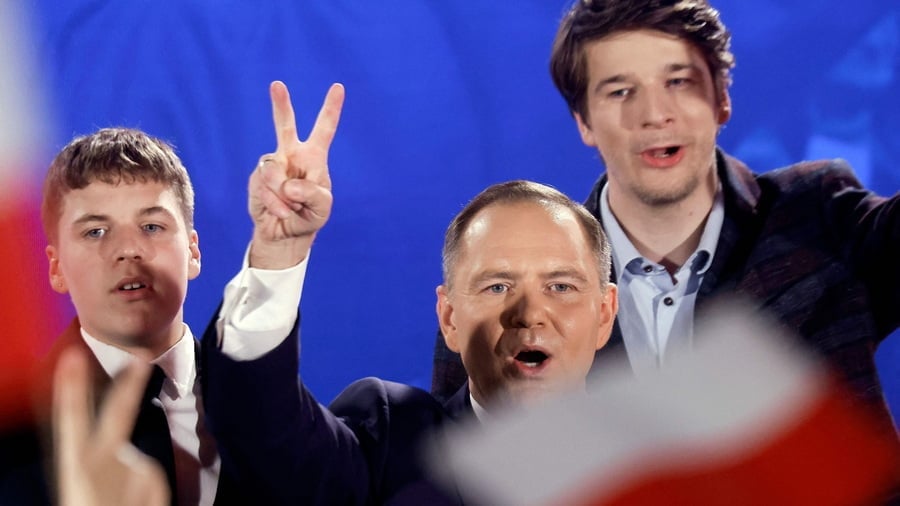In Poland, right-wing conservative Karol Nawrocki has won the presidential election. In the second round, he was supported by extremist and even openly anti-Semitic candidates who had placed third and fourth in the first round.
This latest victory for right-wing conservatives can be explained by a number of factors, which may be broadly divided into short-term consequences and long-term causes. Among the former is, of course, the difficult situation in Europe—especially the migration crisis, which has persisted for decades. It is no coincidence that Nawrocki’s main campaign slogan was “Poland without migrants.”
Poles are naturally concerned about the ongoing war in neighboring Ukraine. While the overwhelming majority of them support the victim of aggression and strongly oppose Putin’s policies—and in this respect, most major Polish political forces are united—it is also clear that Poland, like other European countries, is experiencing economic hardship as a consequence of the war. Some Polish commentators even suggest that the country could follow Hungary’s path in the coming years. Under Viktor Orbán, Hungary has frequently opposed the EU’s official political line on a range of issues.
“Euroscepticism” was, in fact, one of Nawrocki’s key campaign messages. This sentiment has many roots, one of which is the inconsistency and perceived hypocrisy of Brussels on many matters. To cite a specific example from our own experience, the praise lavished by European officials on the “great democrat Pashinyan” is sheer Pharisaism.
Read also
But the rise of conservatives in Europe also has deeper ideological, and therefore longer-term, causes. The liberal vision of building a “paradise on Earth” without faith, without core values, and without any moral hierarchy has revealed its bankruptcy—at least for now. Many people have come to this realization recently, and not just in the West.
Aram ABRAHAMYAN


















































